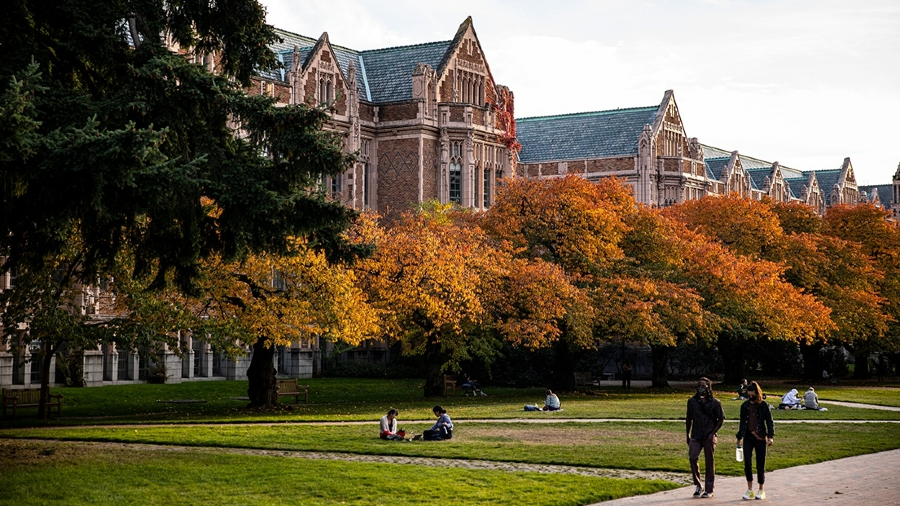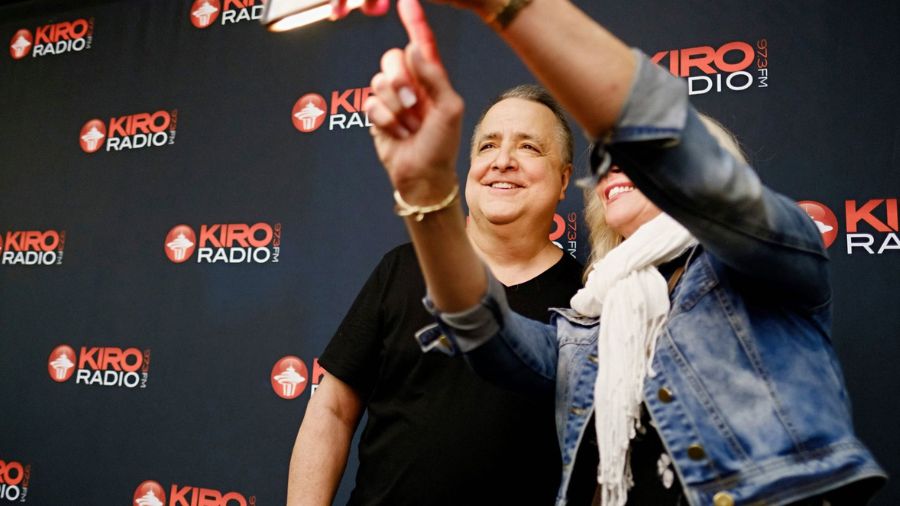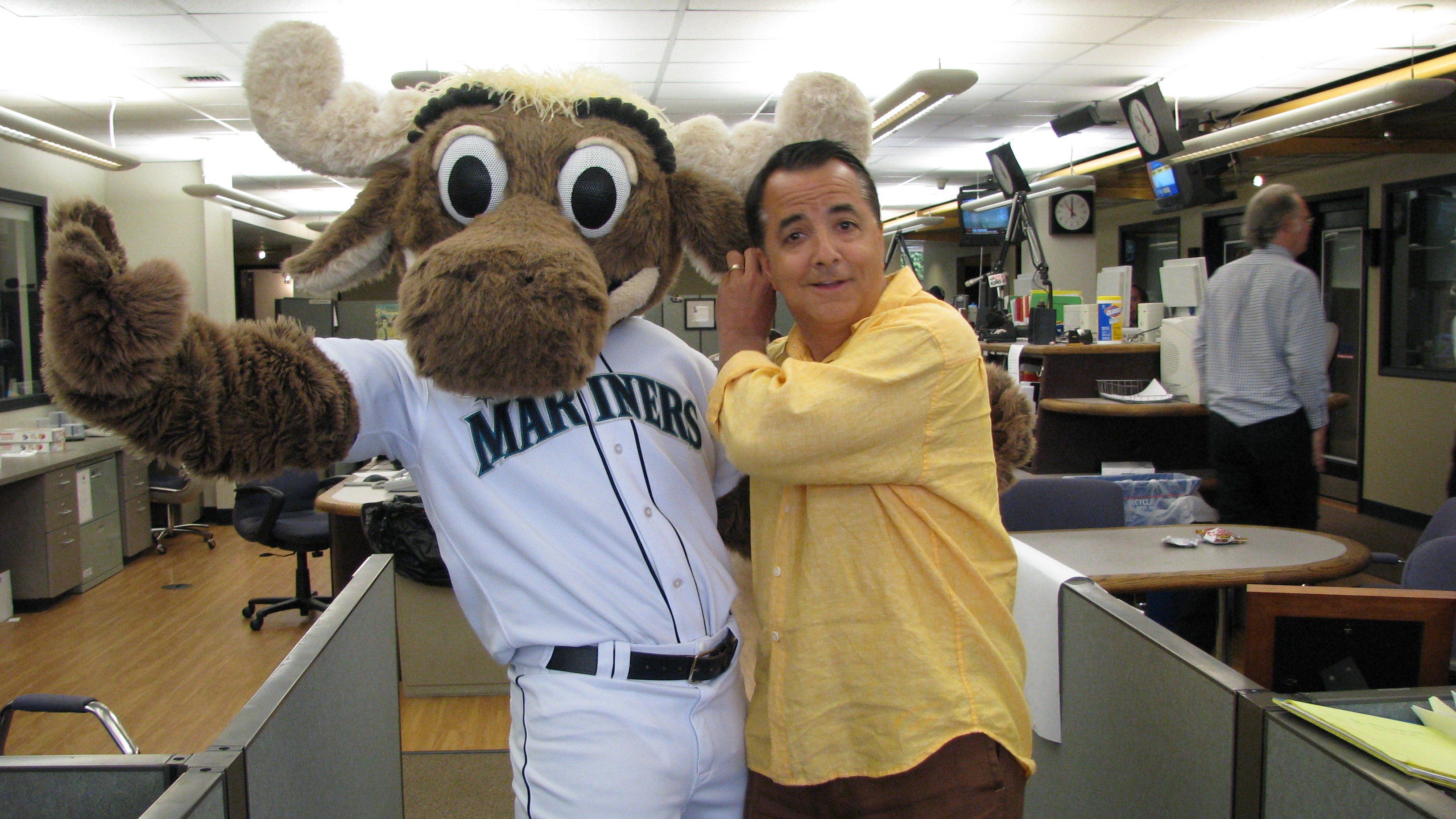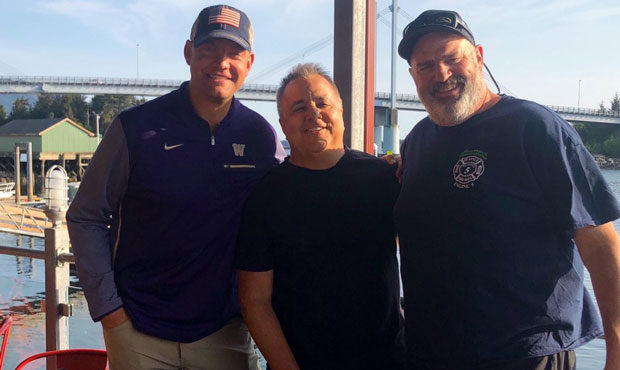Dori: Prof files free speech suit against UW’s required ‘native land’ statement; calls it ‘hollow’
Jul 14, 2022, 7:13 PM

University of Washington Campus (MyNorthwest file photo)
(MyNorthwest file photo)
When the University of Washington started requiring professors to give their students a course syllabus statement acknowledging the campus “sits on occupied land” of Coastal Salish native people, computer science teaching professor Stuart Reges pushed back with a statement version of his own.
Now, Reges told The Dori Monson Show he’s filed suit in federal court to back it up.
“I have always been opposed to limits on free speech,” Reges said.
The issue started in September 2020 when the UW’s diversity committee began requiring an “Indigenous Land Acknowledgement Statement” to be included in course materials, the professor told Dori’s Thursday listeners.
Reges disagrees with both what’s in the statement – and with the university’s role in mandating the speech at all.
Dori: What’s behind Seattle schools big enrollment drop?
The UW’s template reads: “Our campus sits on occupied land. We recognize that this is a difficult, painful and long history . . . and we thank the original caretakers of this land.”
“I decided to test the waters with this,” Reges told Dori. “They want you to pair this with a sense of guilt, a particular view of American history. I thought it would be interesting to do a land acknowledgment that doesn’t have the guilt.”
Instead, the computer science professor posted this in his course syllabus: “I acknowledge that, by the labor theory of property, the Coast Salish people can claim historical ownership of almost none of the land currently occupied by the University of Washington.”
His argument: the labor theory of property, written in 1689 by the so-called “Father of Liberalism” John Locke. In his Second Treatise of Government, Locke claims “ownership derives from bettering the land.”
“That just freaked them out that I didn’t spout the company line about guilt and stealing land,” Reges said of UW computer science and engineering administrators.
“Land acknowledgments – almost nobody likes these things,” he continued. “They’re really hollow when they aren’t paired with some concrete action you might take.”
A self-proclaimed Libertarian, Reges described the so-called “occupied land” issue as complex. “There was a treaty where the U.S. purchased the land from the tribe. There’s a lot involved here. It can’t be summarized in two sentences,” he said.
More troubling, Dori pointed out, is that the university was requiring professors to follow “toe-the-line” statements.
“The University of Washington is a public institution – which means the government was mandating what you say,” Dori said. “If you didn’t believe (the statement), they wanted you to lie.”
“Or to stay silent,” Reges responded. “That’s what makes this a First Amendment issue.”
The UW, Reges continued, “could allow all land acknowledgment (statements) or ban them all” – but they can’t pick and choose based on content. He calls it the result of a “weird Orwellian twist” where “inclusion to them is exclusion of people like me.”
“You’re quite the rebel,” Dori told Reges after learning about similar challenges the professor raised while teaching at Stanford University. “Do you seek out these fights?”
“The theme throughout is free speech,” Reges said. “I have always been opposed to limits on free speech. I was openly gay at a time when it was not okay to be openly gay – but I wasn’t going to let them shut me up. I talked about the drug war when it wasn’t popular to talk about the drug war. And they fired me from Stanford for it. I’ve always spoken my mind. It has gotten me into trouble over the years.”
His current pushback has led him to a lawsuit filed Wednesday in U.S. District Court’s Western Washington Division in Seattle.
What are you seeking in your suit? Dori asked.
“That they admit that I did nothing wrong,” Reges said. “Faculty should be allowed to express these kinds of opinions. They’ve said that — in the name of inclusion — that [the university] has to silence faculty members who say offensive things. That is a dangerous idea that really needs to be nipped in the bud.”
Listen to Dori Monson weekday afternoons from noon – 3 p.m. on KIRO Newsradio, 97.3 FM. Subscribe to the podcast here.













